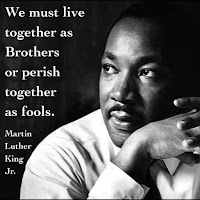– R. Kent Hughes & W. Carey Hughes, “Disciplines of a Godly Young Man”
We disciples of Christ are called to live in community with one another as part of a local church family to worship God, learn, and help one another grow more Christ-like as we move from independence to interdependence, selfishness to selflessness, and from spiritual childlikeness to spiritual maturity.
This begs the following questions:
- Am I currently living this process out in my life?
- Do I find myself with at least a few sincere, close and growing friendships with other people of faith?
When I consider the current Christian community in today’s society, the following words penned by Octavius Winslow back in 1856, come to mind, and my soul woefully aches because I fear that it no longer rings true:
- Do I find it actually more difficult to make and grow Christian friendships due to judgments based on current denominational or doctrinal differences with other “Christian” people?
“Two brethren in the Lord of widely different sections of the Church, and of much dissonance of sentiment on some points of truth, meet and converse together. Each wonders that, with the Word of God in his hand, the other should not read it as he reads it, and interpret it as he interprets it. But they drop the points of difference, and take up the points of agreement. They speak of Christ—the Christ who loves them both, and whom they both love. They talk of the one Master whom they serve; of their common labors and infirmities, trials and temptations, discouragements, failures, and success; they talk of the heaven where they are journeying; of their Father’s house, in which they will dwell together for ever; they kneel in prayer; they cast themselves before the cross; the oil of gladness anoints them; their hearts are broken, their spirits are humbled, their souls are blended; they rise, and feel more deeply and more strongly than ever, that they both belong to the same family, are both of the “many brethren,” of whom the Son of God is the “Firstborn,” the Elder Brother. Oh, blessed unity! What perfect harmony of creed, what strict conformity of ritual, what sameness of denominational relation, is for a moment to be compared with this? Have you, my reader, this evidence that you belong to the “many brethren”?”
Please forgive me for including an evolutionary image, as I beg your patience, to allow me a moment to explain its placement in this blog article. As a believer in God’s Word, I fully believe that all life, either physical or spiritual, is unquestionably a creationistic work by our Sovereign Triune Creator. That said, we also must acknowledge that with life, growth is to be expected, nurtured, and intentionally pursued. Our knowledge and understanding of, as well as our relationship with God does evolve as we move through the cyclical seasons of life as we progress through its various stages.
What we know now may be very different from what we first understood when the Lord saved us. Yet, our early ignorance and misconceptions held, didn’t make us any less “saved” or “loved” by God, however can the same be said about our adopted brothers and sisters in our new family of faith? How many of us unthinkingly violate and are victims of others violating Romans 14:1-4?
- Let us Love One Another, Barry Parsons
- The Basis of Friendship
- Friends
- The Communion of True Community
CORAM DEO: Romans 15:5-6
What are your thoughts? Let’s discuss. Thank you for your comments!



No comments:
Post a Comment